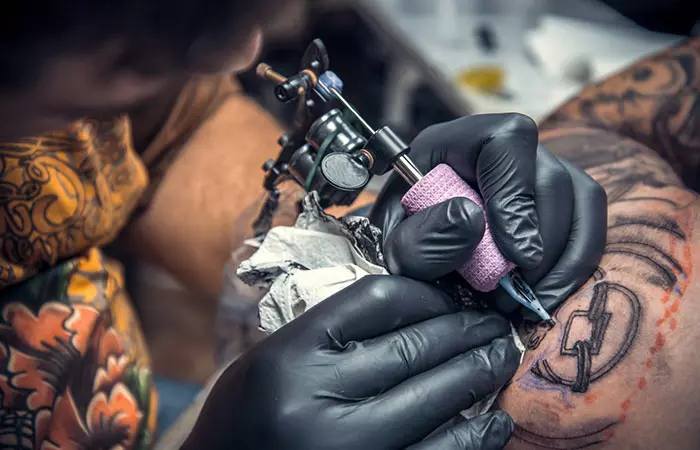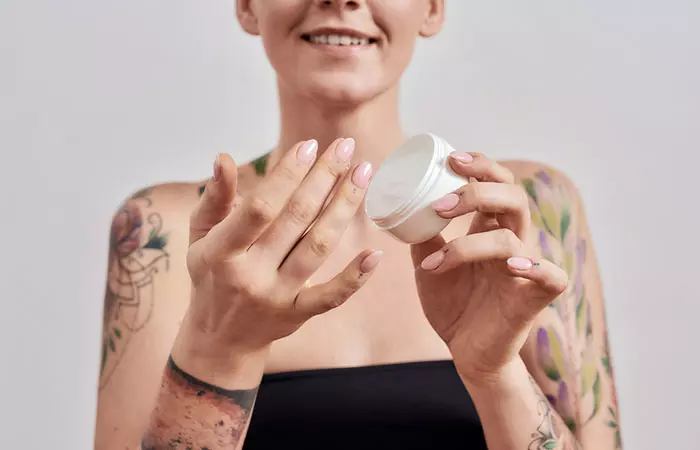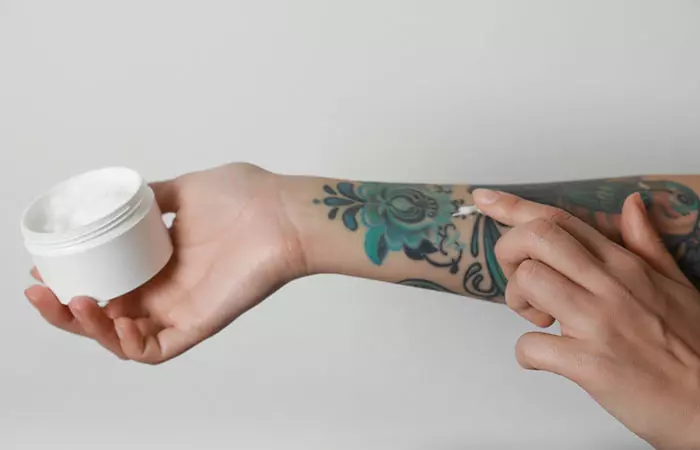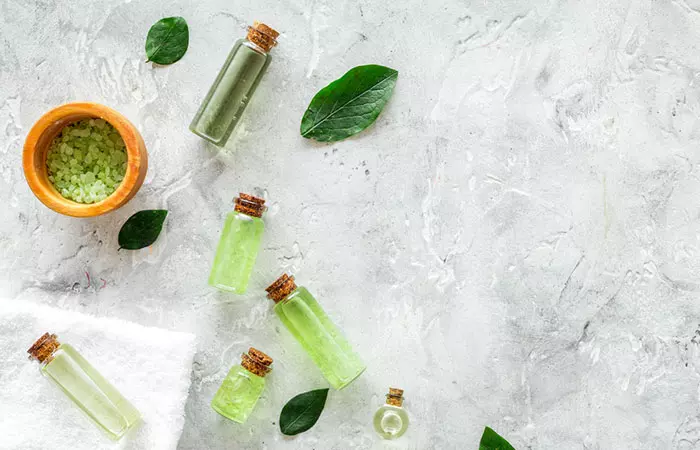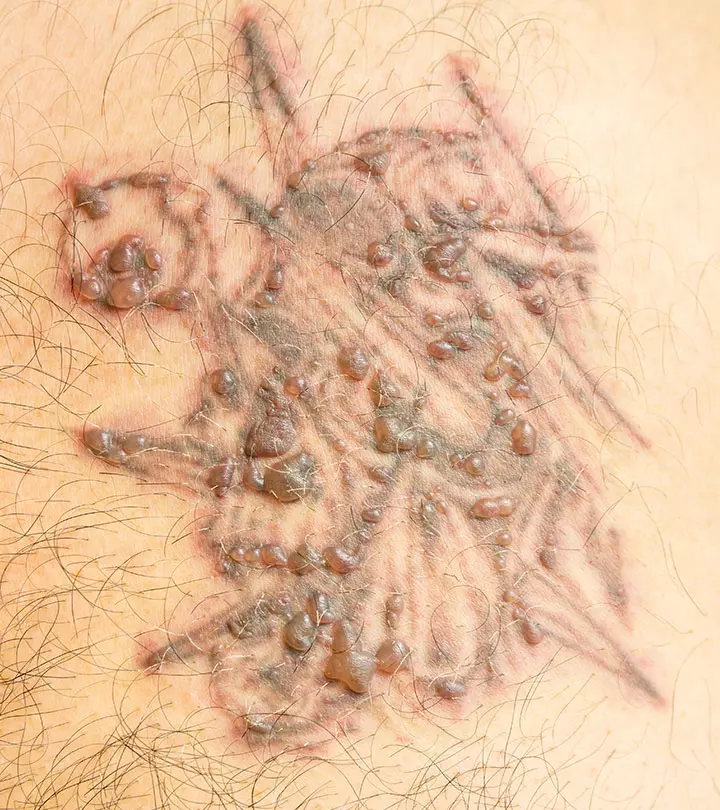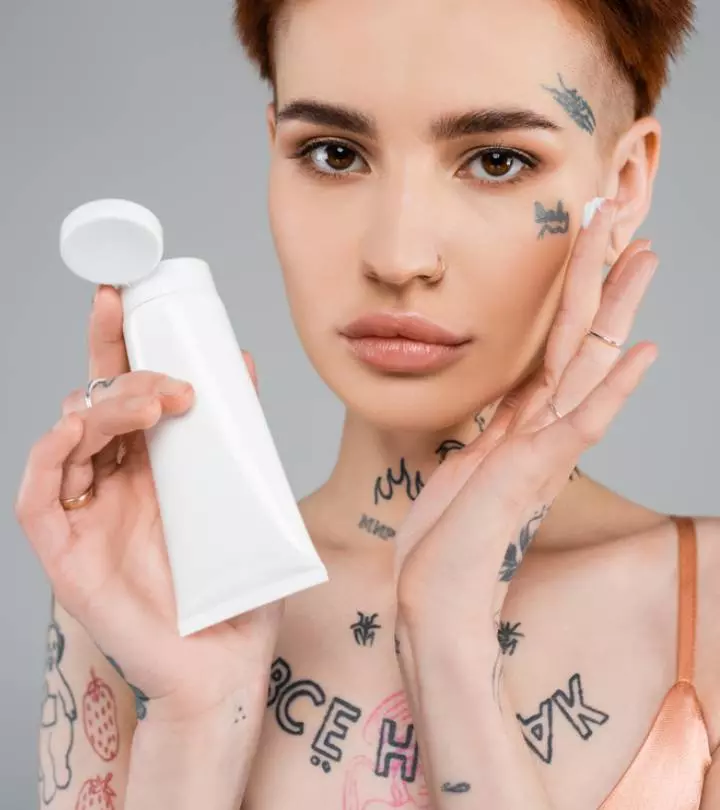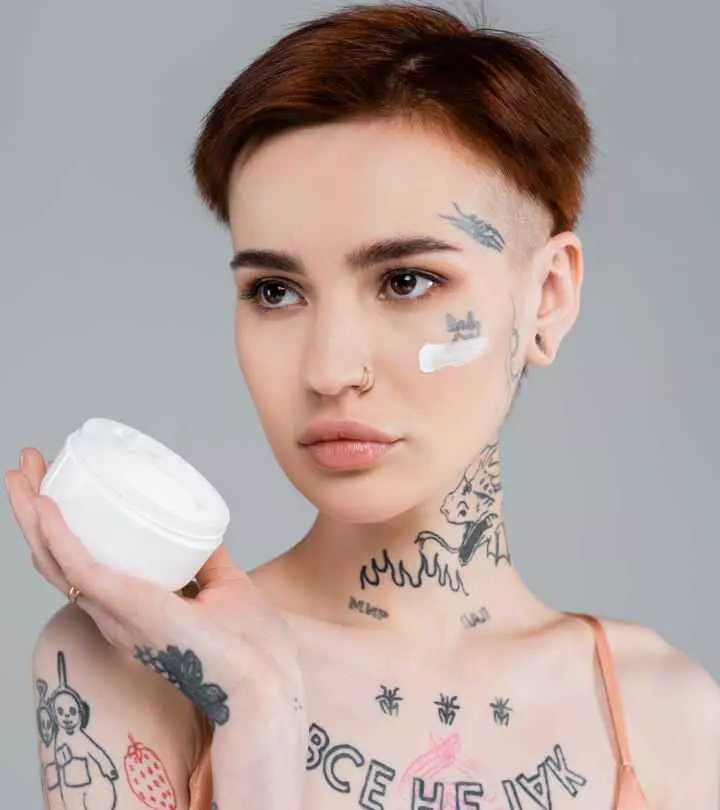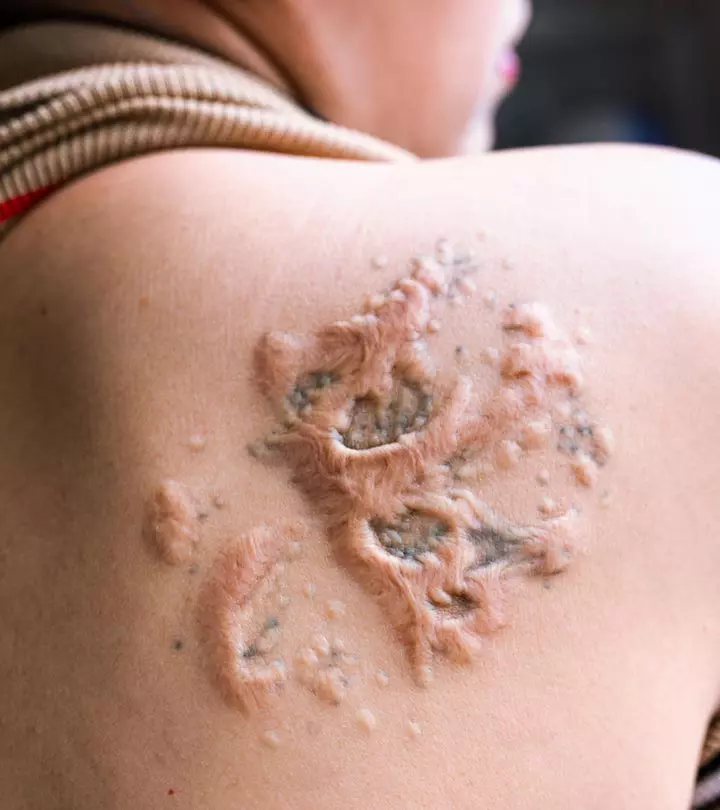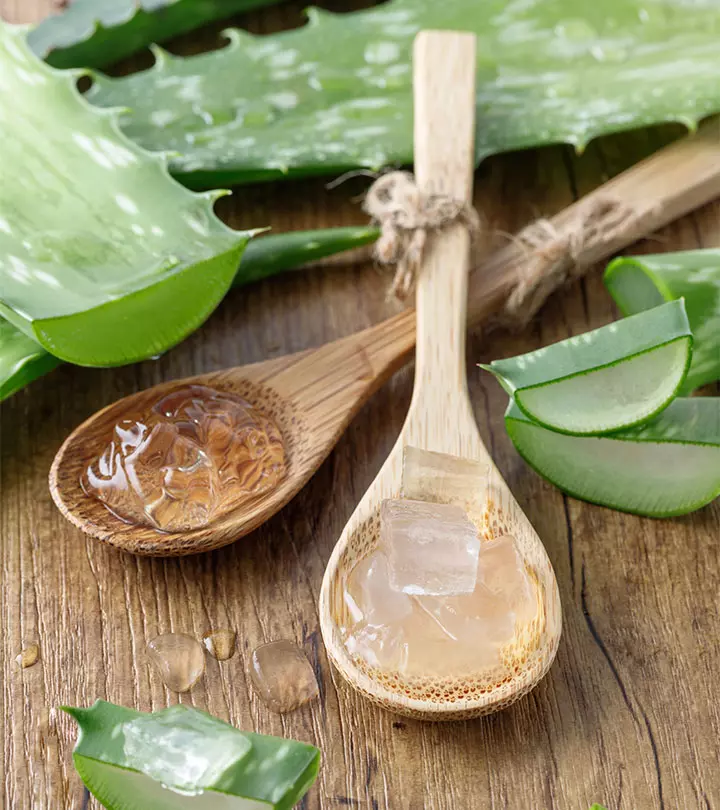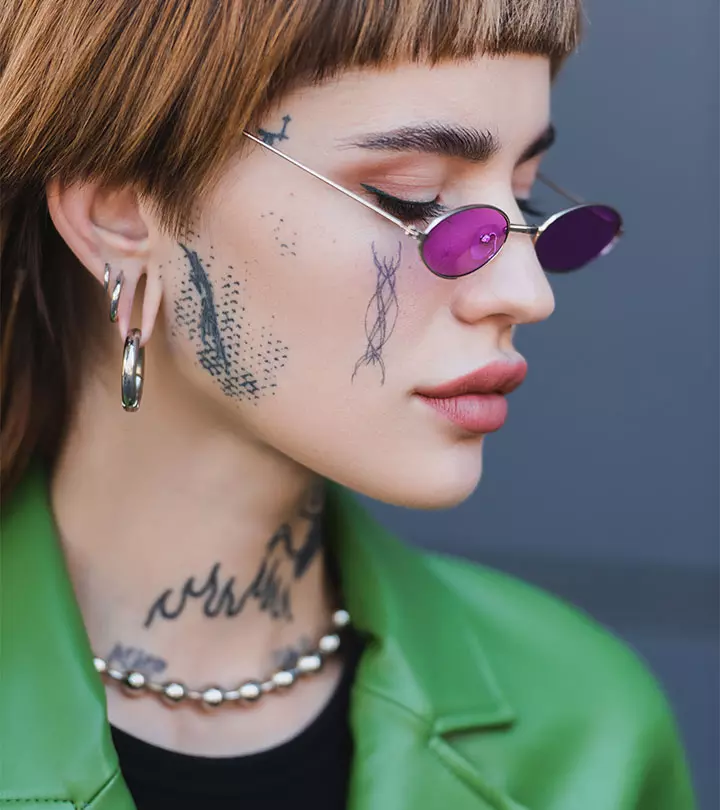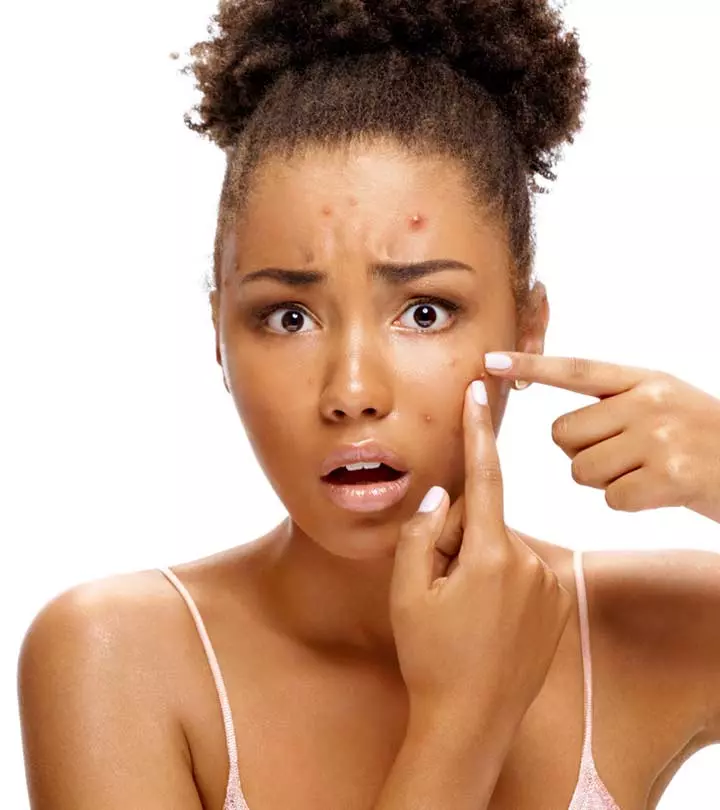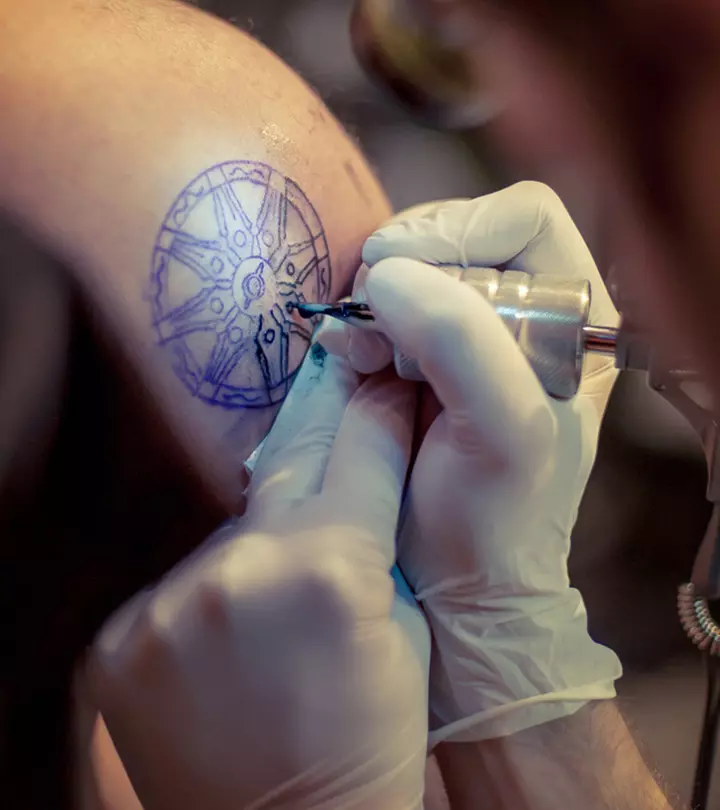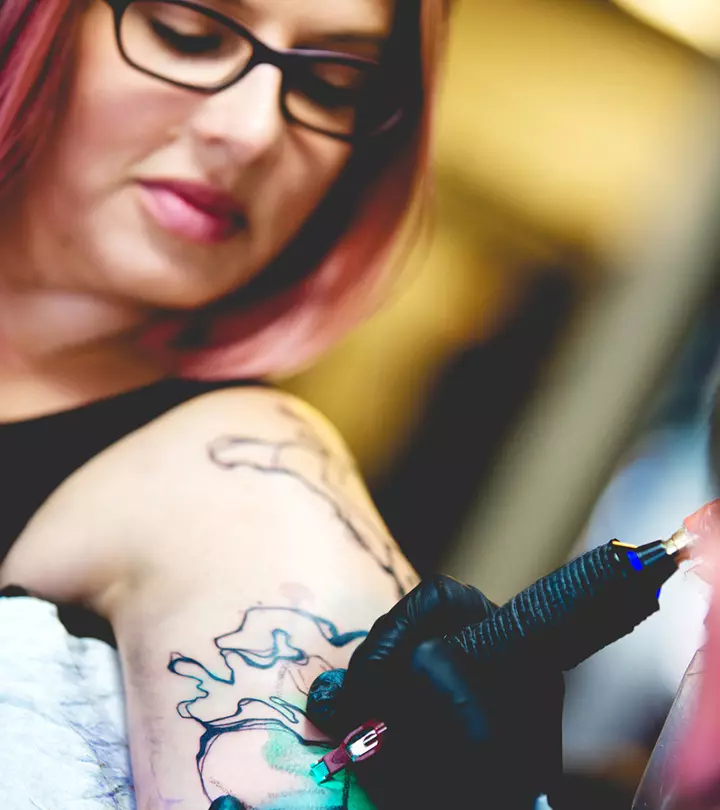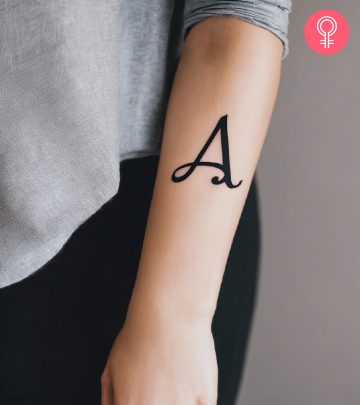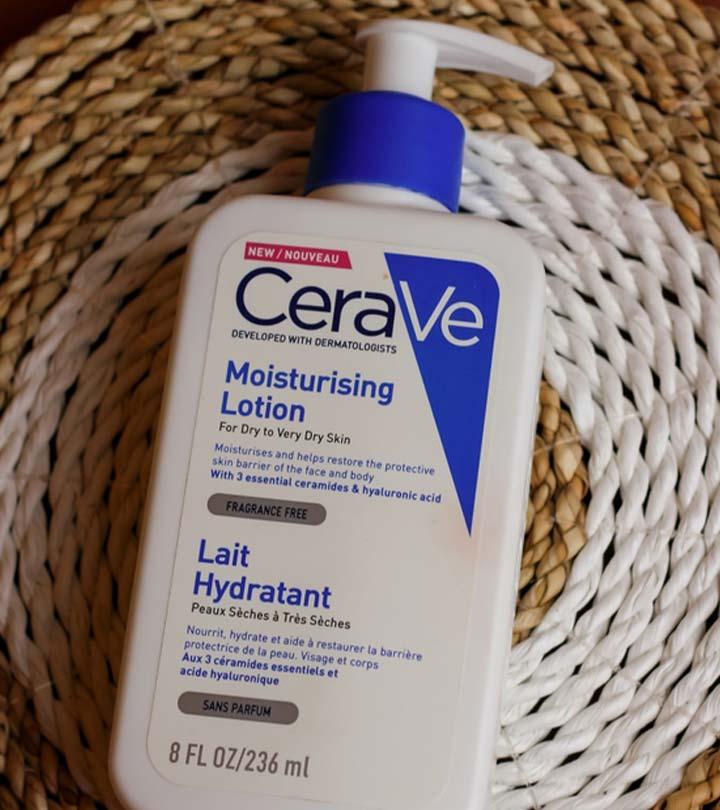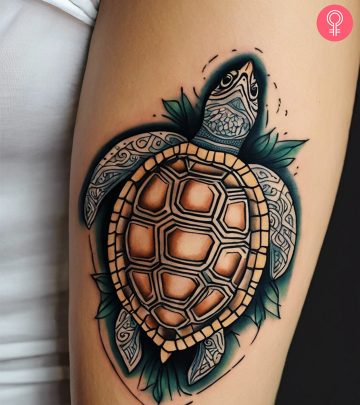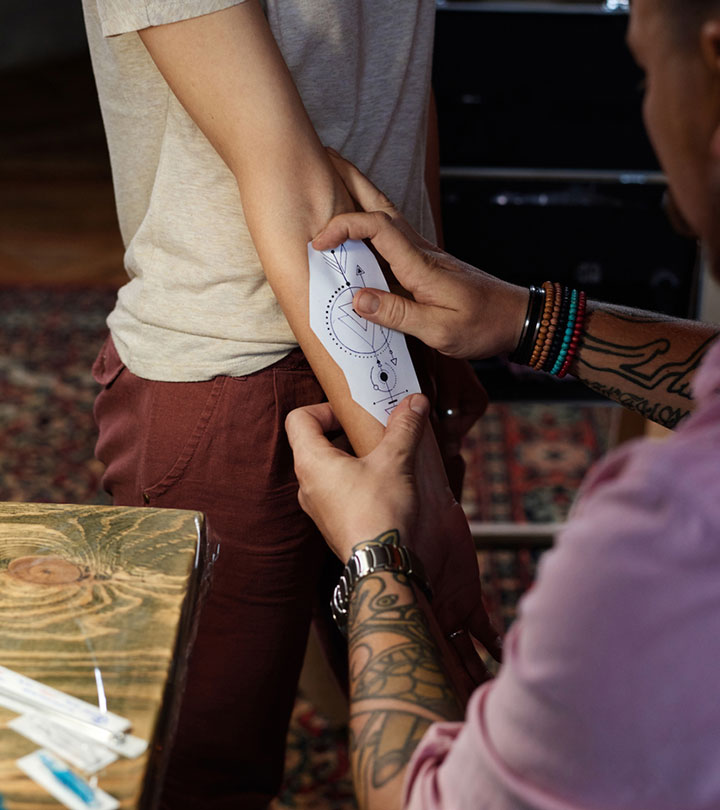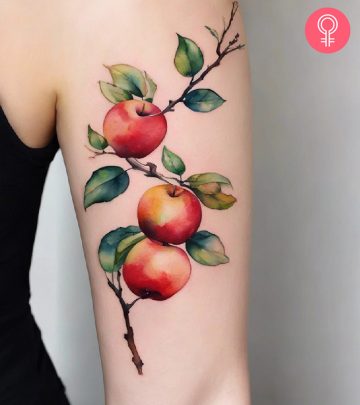Pimple On Tattoo: Causes & How To Relieve It
Because your body art deserves a blemish-free story, even from mild acne breakouts.
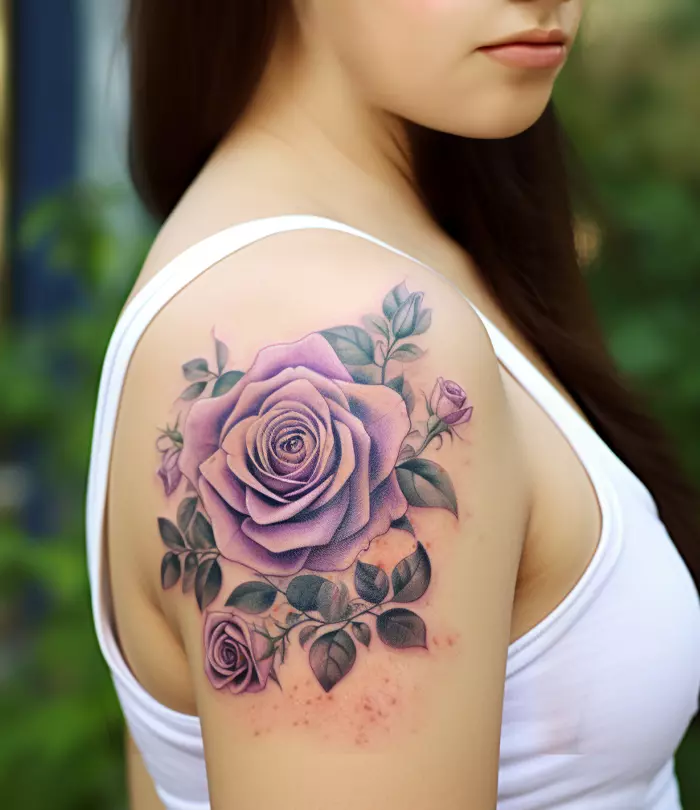
Image: Created with Midjourney
The joy of sporting a fresh piece of body art can sometimes be dampened by an unexpected visitor – the notorious pimple. Yes, you read it right, you may notice pimples on your tattoo! Just when you thought the hardest part was enduring the tattoo needle, these pesky intruders can appear, causing discomfort and concern.
But why exactly do pimples appear on tattoos? They are not your typical blemish, and dealing with them requires a bit more finesse than addressing a regular pimple on your skin. In this article, we discuss the causes behind these unwelcome guests and explore effective ways to relieve the irritation they bring. Scroll down to uncover the mysteries behind these unexpected hitchhikers and discover how to bid them farewell.
In This Article
Causes Of Pimples On Tattoos
- Over-Application Of Ointment
The most common culprit for tattoo pimples is the over-application of ointments or moisturizers during the healing process. While a healing tattoo requires care, it also needs to breathe. Excessive use of ointments or moisturizers, even if they are artist-approved, can smother the tattoo, leading to a buildup of bacteria in the epidermis, the outermost layer of the skin. This bacterial influx can cause inflammation and result in clusters of small pimples around the tattoo.
- Skin Irritation
The tattooing process involves creating multiple puncture wounds in the skin, triggering an immune response. Skin irritation can arise, especially with new tattoos, leading to inflammation and breakouts on the freshly inked skin. Wearing constricting clothing or bandages that rub against the tattooed area can exacerbate skin irritation. An allergic reaction to the tattoo ink may also lead to breakouts.
- Bacterial Infections
Dirty wraps or prolonged wrap usage can introduce acne-causing bacteria to the healing tattoo. The combination of heat and accumulated bacteria beneath the wrap creates a breeding ground for infection, manifesting as outbreaks of pimples, redness, and swelling. A bacterial infection can also occur when you don’t follow the proper hygienic practices after getting a tattoo. Additionally, an infected tattoo heals slower than normal, so ensure the tattoo artist and salon practice the highest hygienic standards.
- Acne And Excess Sebum
Acne vulgaris, a skin condition caused by excess sebum production, may contribute to pimples on tattoos. Sebum, an oily substance produced by sebaceous glands, can trap dirt, dead skin cells, and bacteria, clogging your pores and leading to the formation of pimples on the skin’s surface. This risk is heightened in individuals with acne-prone skin or with an infected tattoo, affecting both fresh and old tattoos. In some cases, tattoo ink deposits may clog already large pores and aggravate acne.
 Quick Tip
Quick Tip- Excess Moisture
It is best to keep new tattoos dry as excessive moisture can occur if the tattoo is overly bandaged or if too much ointment is applied. This can lead to scabbing, color loss, and the promotion of harmful bacteria growth, hampering the tattoo healing process. Avoid applying water on the tattoo as well. When taking a shower, a quick wash is recommended to keep the tattoo clean, while preventing excess moisture from seeping into the skin. Also, pat dry the tattooed skin or let it air-dry.
A YouTuber shared his experience of developing bumps or pimples on a fresh tattoo. He shot the video at a doctor’s office, emphasizing the seriousness of the matter. He says, “It just started itching. I woke up in the middle of the night and it had like little tiny bumps on it. If that happens, it’s something that he (doctor) said is real common (i).”
Whether you are a seasoned tattoo enthusiast or a first-timer, addressing these causes can help ensure that your journey into body art remains a positive and aesthetically pleasing experience. Scroll down to know how these pesky pimples can damage the tattoo design.
Can Pimples Damage A Tattoo Design?
- If You Have An Old Tattoo
Pimples on an older tattoo design might not ruin the masterpiece, but they can definitely be a visual nuisance. They may distort the clarity of the ink and draw attention away from the fine details you want people to notice. It is like having an unexpected guest at a party – not catastrophic, but definitely not a part of the plan.
- If You Have A New Tattoo
Now, when it comes to new tattoo designs, pimples can be a bit more disruptive. The newly tattooed skin is more vulnerable to pimples and may even potentially impact its healing process. The risk of infection and color distortion becomes more prominent with those unwelcome bumps.
In both cases, while pimples won’t necessarily cause irreversible damage, they may alter the visual appeal of your tattoo. Proper care, hygiene, and a bit of patience during the healing process can go a long way in ensuring your tattoo and skin remain healthy.
Dealing with pimples on your tattoo can be a bit tricky, especially considering the delicate nature of newly inked skin. Scroll down to learn more about how you can treat these pimples without disrupting the skin’s healing process.
How To Get Rid Of Pimples On A Tattoo
- Non-Comedogenic Ointments
Consider using a non-comedogenic ointment recommended by an experienced tattoo artist or dermatologist to avoid ingredients like petroleum, glycerin, or lanolin. These ingredients can clog your pores, leading to the formation of pimples. Some dermatologists may recommend prescription ointments for those with acne-prone skin.
- At-Home Spot Treatments
Fully healed tattoos may respond better to at-home spot treatments. You can use the following treatments:
– Aloe Vera Gel
Applying aloe vera gel on the affected area can help soothe irritation and itchy skin and reduce inflammation (1). Aloe vera has natural anti-inflammatory and antibacterial properties that can aid in the healing process without harming the tattoo. It may also act as a moisturizing agent, reducing the risk of scaly skin.
– Green Tea Mask
Green tea is rich in antioxidants and has anti-inflammatory benefits, making it a natural choice for treating pimples on tattoos (2). Brew a cup of green tea and let it cool. Apply the cooled tea as a mask to the affected area or use a cotton pad to dab it gently. Green tea can help calm irritated skin and promote healing.
- OTC Spot Treatments
These include acne ointments, anti-acne body cleansers, face washes, and topical retinoid products. Products like Differin gel or COSRX acne pimple master patch can be effective in treating pimples on old tattoos. Oral or topical antibiotic ointments may also be considered.
Remember, whether your tattoo is fresh or well-seasoned, treating pimples on tattoos requires a delicate approach to ensure your skin and the tattoo stay fine.
How To Treat A Pimple On Any Tattoo
- Avoid Harsh Topical Treatments
Stay away from products containing benzoyl peroxide or salicylic acid, as they may irritate and excessively dry the skin, hindering the healing process of a pimple on the tattoo.
- Be Gentle While Cleaning
Wash the affected area with warm water and antibacterial soap. Opt for a mild, fragrance-free soap to avoid potential irritation, followed by a fragrance-free moisturizer.
 Pro Tip
Pro Tip- Natural Home Remedies
Explore natural remedies like tea tree oil, zinc supplements, or fish oil supplements (3), (4), (5).
The antibacterial properties of tea tree oil can help combat the bacteria that contribute to pimple formation, while its anti-inflammatory effects reduce the redness and swelling associated with pimples (3). The anti-inflammatory properties of fish oil, and particularly its omega-3 fatty acids, may help alleviate acne symptoms (5). These remedies can provide relief without the use of any
harsh chemicals.
Scroll down to discover easy-to-follow tips that can help keep those pesky pimples away from the cherished tattoo.
Prevention Tips
- Follow Aftercare Instructions
Adhere to your tattoo artist’s aftercare instructions that typically involve cleansing the tattoo with warm water and a mild, unscented antibacterial soap. Follow this up with a moisturizing lotion or ointment.
- Keep The Tattoo Dry
Keeping the tattoo dry is a crucial step in tattoo aftercare. It promotes healing and helps prevent potential issues.
- Minimize Sun Exposure
Freshly tattooed skin is sensitive and prone to sunburn. Sun exposure can cause irritation, redness, and discomfort, and may hinder the healing process.
- Avoid Picking Or Popping
Refrain from picking, popping, or scratching the affected area. This can spread bacteria and potentially damage the tattoo.
- Use Fragrance-Free Products
Choose skincare products free of fragrance and other additives to prevent irritation and maintain the balance of your skin.
Also, always consult with your tattoo artist before trying new products or if you suspect an infection.
When To See A Doctor
While many instances of tattoo pimples, or an active breakout on tattooed skin, can be managed at home, some specific signs and situations warrant seeking professional medical advice.
- You See Signs Of Infection
– Pus coming out of the tattooed area
– Areas of hard, raised tissue
– Swelling of the tattooed area
– Fluid buildup near the tattoo
– Hot and cold sensations that come and go
- The Ink Gets Distorted From Picking
If you have distorted your tattoo by picking at or scratching the pimples, it’s advisable to wait until your skin has completely healed before considering any touch-ups. Attempting touch-ups on compromised skin can lead to further complications.
- Pimples Do Not Heal
If your pimples persist without improvement despite at-home or over-the-counter treatments, it may be time to consult a doctor or dermatologist. They can assess the situation more comprehensively and recommend a suitable course of action.
Prioritize your health and the well-being of your tattoo by seeking timely professional advice when needed.
A pimple on a tattoo can indeed be an unexpected twist in your journey of self-expression. Despite the discomfort it may bring, understanding the causes behind this tattoo intruder allows us to navigate its presence with finesse. While these pesky pimples may not necessarily cause irreversible damage, their potential to alter the visual appeal of your tattoo cannot be ignored. Dealing with tattoo pimples requires a thoughtful approach, emphasizing proper care, hygiene, and patience during the healing process. However, if you suspect any infection or liquid oozing out of those pimples, it’s best to consult a doctor or dermatologist.
Frequently Asked Questions
How long do tattoo pimples last?
Tattoo pimples typically last for a few days to a couple of weeks. Proper care, cleanliness, and avoiding irritation can expedite the healing process.
Is it normal to get pimples on a new tattoo?
Yes, it’s normal. Pimples on a new tattoo can result from the healing process, skin irritation, or excess moisture. Most resolve on their own with proper care.
Can I pop a tattoo bubble?
No, popping a tattoo bubble is not recommended. It can introduce bacteria, potentially leading to infection or scarring. Let it heal naturally and consult your tattoo artist if concerned.
What does a pimple look like when it is healing?
A healing pimple may reduce in size, become less inflamed, and gradually fade. It may scab over and eventually disappear as the skin heals. Avoid picking or scratching for optimal healing.
Key Takeaways
- Over-application of ointment during healing and the introduction of bacteria, often from dirty wraps, can lead to pimples on tattoos.
- Pimples on old tattoos may be a visual nuisance, while on new tattoos, they can disrupt the healing process and pose a risk of infection.
- Use non-comedogenic ointments, consider OTC or spot treatments for fully healed tattoos, and explore natural remedies.
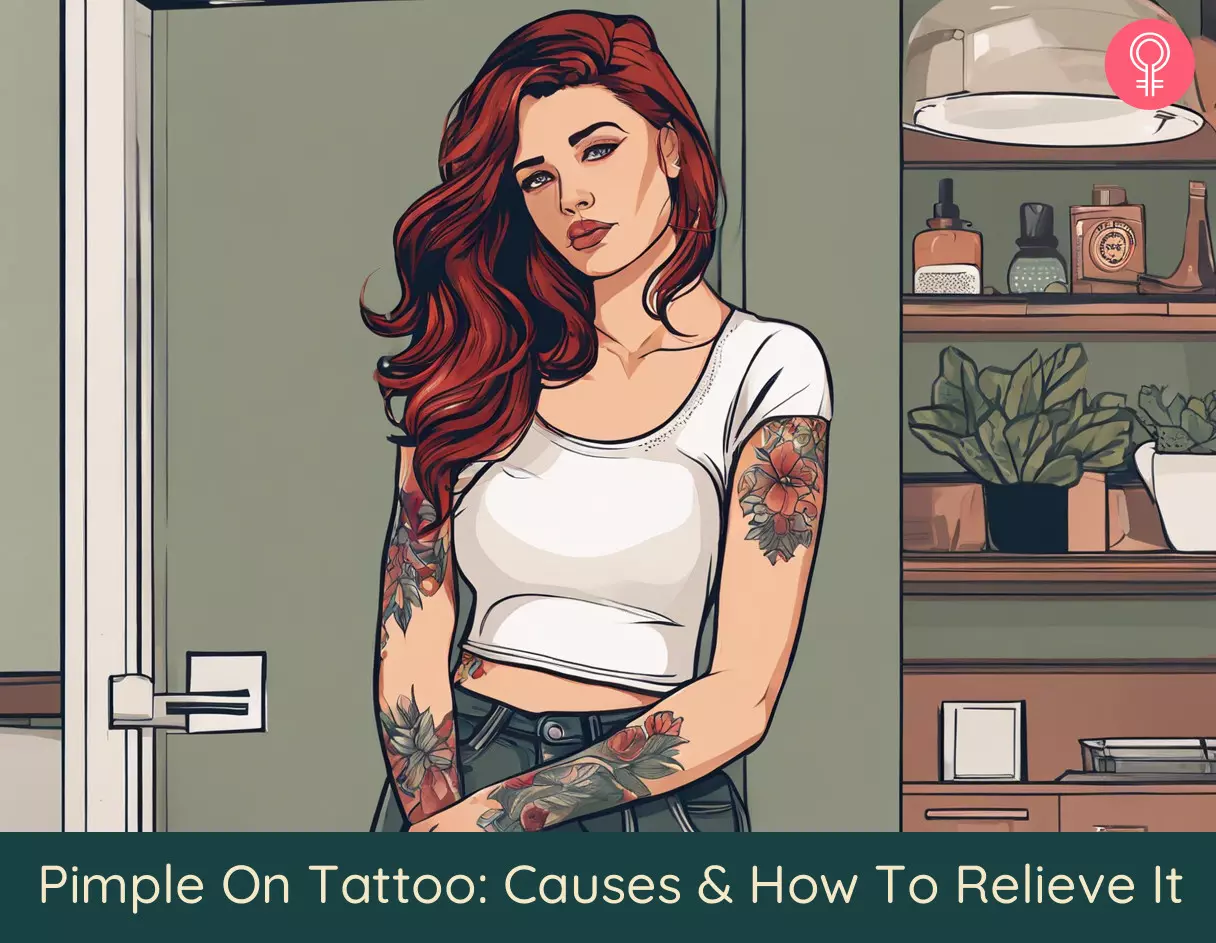
Image: Stable Diffusion/StyleCraze Design Team
Learn what to do if your tattoo gets infected. Don’t miss out, watch now for essential tips to safeguard your body art.
Personal Experience: Source
StyleCraze's articles are interwoven with authentic personal narratives that provide depth and resonance to our content. Below are the sources of the personal accounts referenced in this article.
(i) If your tattoo has bumps you should do this (first timers to tattoos)https://www.youtube.com/watch?v=n0pRk2XaPoQ
References
Articles on StyleCraze are backed by verified information from peer-reviewed and academic research papers, reputed organizations, research institutions, and medical associations to ensure accuracy and relevance. Read our editorial policy to learn more.
- Aloe vera: a short review
https://www.ncbi.nlm.nih.gov/pmc/articles/PMC2763764/ - Green Tea and Other Tea Polyphenols: Effects on Sebum Production and Acne Vulgaris
https://pubmed.ncbi.nlm.nih.gov/28036057/# - Tea tree oil gel for mild to moderate acne; a 12-week uncontrolled open-label phase II pilot study
https://pubmed.ncbi.nlm.nih.gov/27000386/# - The role of zinc in the treatment of acne: A review of the literature
https://pubmed.ncbi.nlm.nih.gov/29193602/ - Effects of fish oil supplementation on inflammatory acne
https://pubmed.ncbi.nlm.nih.gov/23206895/#
Read full bio of Anjali Sayee
Read full bio of Joyce Joyson




